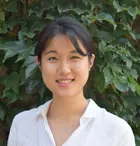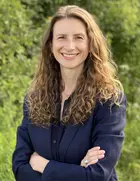Get to Know Our Postdoctoral Research Associates
Q&A with Minseon Park and Sarah Payne
The Broad Center at the Yale School of Management (TBC at SOM) is working to strengthen ideas, policies, and leadership that improve urban K-12 education. A main pillar of our work is research – specifically, developing essential research on effective public education systems and school system leadership, focusing on the dynamics of school systems as complex organizations.
In 2023, we launched a postdoctoral associate program to bring together promising scholars and research capacity from multiple disciplines to work with SOM faculty who focus their research on education. Postdoctoral associates have the chance to continue their own research, partner with and support SOM faculty members in their projects, and collaborate with predoctoral fellows to support TBC at SOM’s work in the research space.
During the 2023-24 school year, we were joined by Minseon (“Min”) Park and Sarah Payne, both of whom have brought to bear skills and ways of thinking from their own disciplines – economics and sociology – to important questions about K-12 public education systems. We sat down with Min and Sarah to hear about their research and their experiences at TBC at SOM.
What is your academic background and your area of study?

Min: I hold a Ph.D. in Economics from the University of Wisconsin-Madison. My area of study focuses on the economics of education, aiming to predict responses to educational policies and evaluate the associated costs and benefits of these policies.
Sarah: My Ph.D. is in sociology, with a focus on racial inequality, education, and culture.
Tell us about your current research.

Min: During my Ph.D. program, I primarily studied how the pre-existing conditions of different children influence their interactions with school choice systems in the U.S. In many large urban areas, students are assigned to public schools through a school choice process designed by economists. We’ve learned that families are best served when they report their preferences honestly based on their genuine needs and wants, given their situation.
However, households participate in the school choice process under varying conditions, which shape not only their needs but also their children’s qualifications. Depending on where a family lives in a city, for example, may influence both the schools their children are eligible for and those they are interested in – they may not want that child to commute an hour or more, but also may not be able to move to be closer to a desirable school.
I have written papers examining how pre-existing factors like home address and earlier educational experiences impact parents' school applications and qualifications for subsequent schools.
Sarah: In one current project, I examine what happens after college for people who stand to gain the most from higher education. I focus on college-going young adults from highly marginalized groups – like low-income and first-generation college students, and students of color. Too often, people from these groups are not well supported in college, and struggle to graduate, but then are left with student loans and, sometimes, no degree. I use quantitative and qualitative methods to study individual trajectories after college, how people make sense of their experiences, and how this meaning-making shapes their socioeconomic mobility.
In another, collaborative project with Prof. Jayanti Owens here at TBC, we are conducting in-depth interviews with public K-12 school teachers across the country to better understand their experiences and decision-making across varying organizational contexts.
What made you want to do your Postdoc here at The Broad Center at Yale SOM?
Min: The decision to pursue a postdoctoral position at TBC at SOM came naturally. Upon completing my Ph.D., I was offered a tenure-track position at the University of Michigan-Ann Arbor. I chose to defer that position for one year to take advantage of the opportunity to join TBC and gain valuable insights from practitioners. This experience will be invaluable when I teach and conduct more research about the U.S. education system.
Sarah: I was drawn both to the faculty and to the mission of TBC at SOM, which links education researchers and education practitioners. As both a current researcher and a former K-12 educator, this pairing felt intuitive and very generative to me.
What have you gotten out of this experience?
Min: The unique exposure to Broad Center Fellows and Master’s students throughout the year has expanded my research interests to include educational leadership in the U.S. I am actively working on projects that investigate the extent to which such leadership translates into district outcomes, such as students' test scores as well as behaviors, and teacher retention. Additionally, I am exploring the political constraints that superintendents and school board members face in translating their efforts into these outcomes.
Sarah: It is thrilling to be in an interdisciplinary research environment where educational equity is foregrounded. I get to interact with sociologists, economists, and management scholars on a weekly basis. I am learning a tremendous amount from their perspectives while also gaining valuable research training and experience. It's an incredibly intellectually rich postdoc setting. And, TBC's support of my research has not only afforded me space to write and present my work, but also to expand data collection toward my longer-term research agenda.



